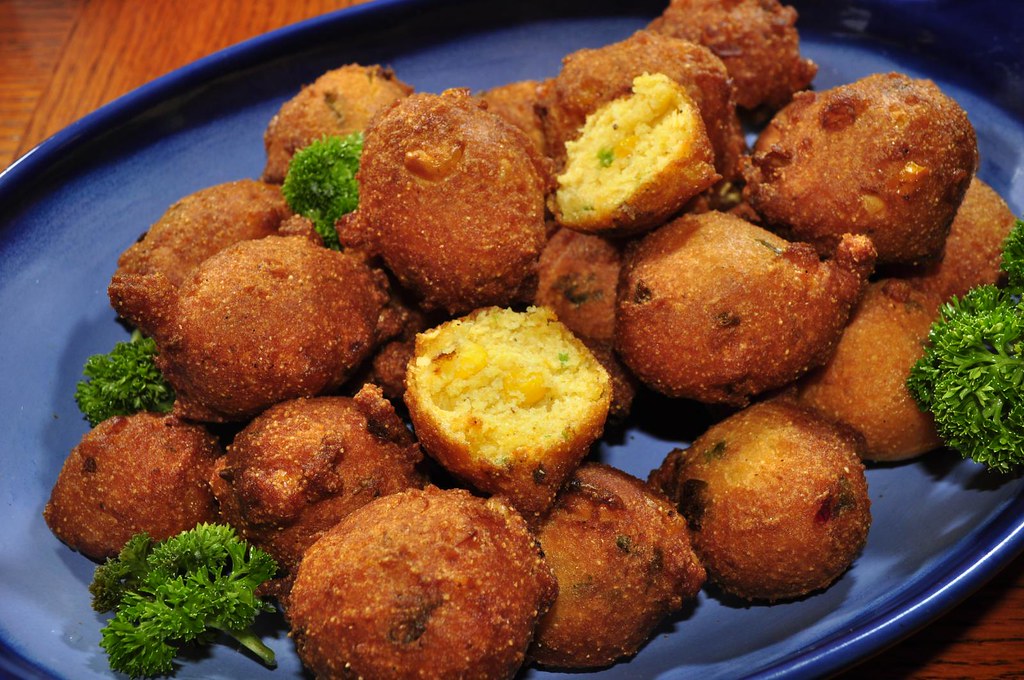Understanding Hush Puppies
Hush puppies are a traditional Southern American dish, typically made from a mixture of cornmeal, flour, eggs, milk, and spices. They are deep-fried until golden brown, giving them a crispy texture that many people enjoy. While this dish is popular among humans, it raises the question: can dogs eat hush puppies?
The answer is generally no, and here’s why. Hush puppies are high in calories and fat, which can be problematic for dogs. A 100g serving may contain around 337 calories and 13.5 grams of fat, far exceeding what a dog needs in a single meal. This can lead to weight gain, obesity, and even more serious conditions like pancreatitis.
In addition to their high fat content, hush puppies are often seasoned with salt, which can be harmful if consumed in large amounts. Some recipes may also include onions or garlic, which are toxic to dogs and can cause damage to their red blood cells.
Canine Dietary Requirements
Dogs have specific nutritional needs that differ from those of humans. Their diet should be balanced and tailored to support their overall health. Key nutrients include:
- Protein: Essential for muscle development and repair. Dogs require about 25% of their diet to come from protein sources.
- Fat: Provides energy and supports skin and coat health. However, too much fat can lead to obesity and other issues. Fat should make up around 10-15% of a dog’s diet.
- Carbohydrates: Offer energy, but should not exceed 50% of a dog’s diet. They can come from grains, vegetables, and fruits.
- Vitamins and Minerals: Crucial for bone and teeth health, immune function, and overall wellbeing. These include vitamin A, B-complex vitamins, calcium, phosphorus, and more.
It’s important to ensure that your dog receives all these nutrients in the right proportions. Feeding them a balanced diet will help maintain their health and vitality.
Potential Risks of Hush Puppies for Dogs
Feeding hush puppies to dogs can pose several risks:
- High in Calories and Fat: The high calorie and fat content can lead to weight gain and obesity, which can contribute to other health issues.
- Oil and Sodium: Deep-frying adds oil, which can cause gastrointestinal problems such as vomiting and diarrhea. Excess sodium can also be harmful.
- Allergies: Some dogs may be allergic to cornmeal, one of the main ingredients in hush puppies. Allergic reactions can include itching, hives, and swelling.
- Digestive Issues: The high-fat content and frying process can cause digestive upset, leading to stomach pain, bloating, and constipation.
- Pancreatitis and Food Bloat: High-fat foods like hush puppies can trigger pancreatitis, an inflammation of the pancreas. They can also cause food bloat, a potentially life-threatening condition.
Given these risks, it’s best to avoid feeding hush puppies to dogs altogether.
Safe Alternatives to Hush Puppies for Dogs
If you’re looking for healthy alternatives to hush puppies, there are several options that are safe and nutritious for dogs:
- Carrots – Rich in vitamins and fiber, they are low in calories and make a great snack.
- Green Beans – Low in calories and high in fiber, ideal for dogs watching their weight.
- Sweet Potatoes – Provide essential vitamins and minerals, and are low in fat.
- Apples – A good source of vitamins and fiber, and can be served sliced or chopped.
- Rice – A healthy source of carbohydrates that can be mixed into meals or served on its own.
When offering these alternatives, always serve them in moderation and consult with your veterinarian to ensure they fit into your dog’s overall diet.
Frequently Asked Questions
Are hush puppies safe for dogs to eat?
Hush puppies are not toxic, but they are not a healthy treat option due to their high fat, calorie, and sodium content.
What are the ingredients in hush puppies?
They typically include cornmeal, flour, eggs, milk, onions, and spices. Some recipes may add bacon or cheese.
Can dogs eat cornmeal?
Cornmeal is safe in small amounts, but some dogs may have allergies or digestive issues with it.
Is it okay for dogs to eat fried food?
Fried foods are not recommended for dogs due to their high fat content and potential to cause digestive issues.
Can dogs eat seafood?
Seafood is safe in moderation, but avoid fish bones and shellfish, which can be choking hazards or cause digestive issues.







